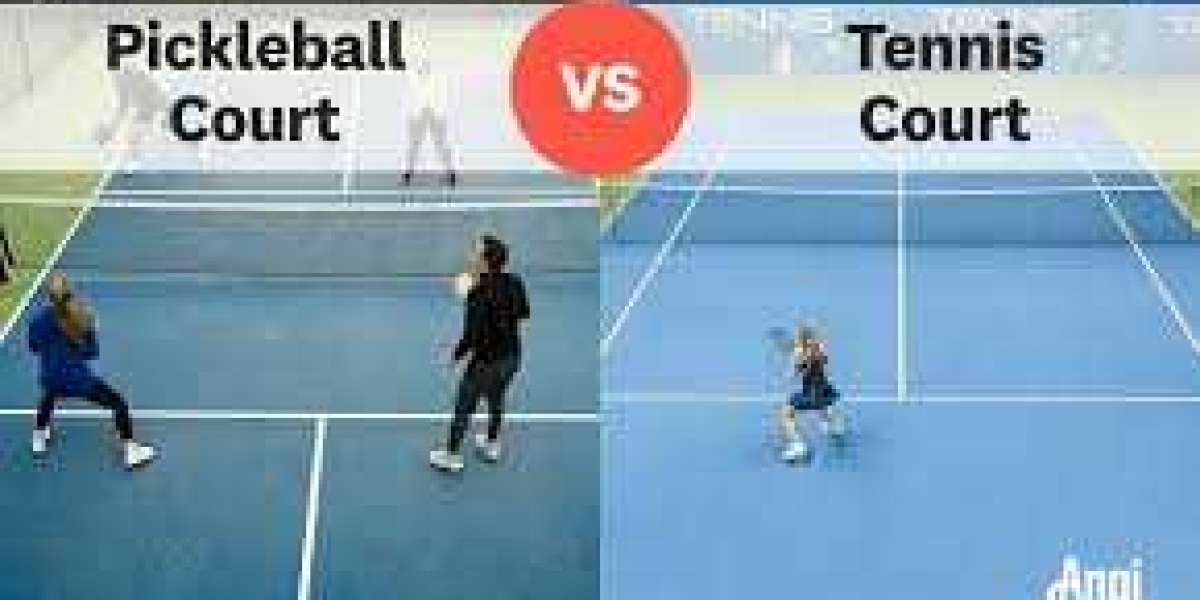What Makes Synthetic Acrylic Flooring Stand Out?
Synthetic acrylic courts are created by applying multiple layers of acrylic coatings over an asphalt or concrete base. This combination results in a smooth, non-slip, and weather-resistant surface that offers excellent playability. The texture of the surface can be customized to create different levels of ball speed and grip, catering to different playing styles.
One of the major advantages of synthetic acrylic is its ability to maintain consistent performance in varying weather conditions. Whether exposed to intense sunlight, heavy rain, or mild frost, the surface remains stable and playable without major deterioration.
Benefits of Synthetic Acrylic Tennis Court Flooring
- Consistent Ball Bounce
The uniform texture ensures predictable ball behavior, which is essential for competitive matches and professional training. - Low Maintenance
Unlike clay or grass courts, acrylic surfaces require minimal upkeep. Regular cleaning and occasional resurfacing can keep the court in top shape for years. - Customizable Appearance
Acrylic coatings come in a wide range of colors, allowing you to match the court to your facility’s branding or create a vibrant playing environment. - Durability
The surface resists cracking, peeling, and fading, even under harsh weather and heavy usage. - Player Safety
Slip-resistant properties help reduce the risk of falls and injuries, making the court safer for players of all skill levels.
Why It’s Perfect for Outdoor Tennis Courts
When building outdoor tennis court flooring, the challenges of weather exposure, UV rays, and varying temperatures must be considered. Synthetic acrylic is designed to withstand these factors without compromising playability. Unlike natural grass or clay, it doesn’t require daily maintenance or irrigation, making it more cost-effective over time.
Acrylic surfaces are also quick-drying, allowing games to resume shortly after rain. This is especially beneficial in regions with unpredictable weather patterns.
Installation Process
The process of installing synthetic acrylic flooring generally involves the following steps:
- Base Preparation – A solid asphalt or concrete base is constructed to provide a stable foundation.
- Crack and Surface Repairs – Any imperfections are filled and leveled to ensure a smooth surface.
- Acrylic Layer Application – Multiple coats of acrylic material are applied for durability and desired texture.
- Line Marking – Court boundaries and markings are painted using high-quality, UV-resistant paint.
Maintenance Tips
While acrylic courts are low-maintenance, some simple care practices can extend their lifespan:
- Regularly sweep away leaves, dirt, and debris.
- Wash the surface occasionally to prevent staining.
- Inspect for cracks or surface wear and repair promptly.
- Reapply acrylic coatings every 4–8 years, depending on usage.
Cost Considerations
The cost of installing synthetic acrylic tennis courts typically ranges between $25,000 and $45,000, depending on size, location, and customization. While the initial investment may seem significant, the long-term savings in maintenance make it an excellent value for sports facilities and private owners alike.
Eco-Friendly Options
Many manufacturers now offer eco-conscious acrylic materials made with recycled or non-toxic components. Choosing environmentally friendly coatings not only benefits the planet but can also improve air quality and reduce harmful chemical exposure for players.
Conclusion
Synthetic acrylic tennis court flooring offers a winning combination of durability, low maintenance, and excellent playability, making it an ideal choice for outdoor sports venues. By investing in a high-quality surface,Outdoor tennis court flooring you ensure consistent performance, reduced upkeep costs, and a safe, enjoyable experience for all players Whether for a professional club, school, or private residence, acrylic courts stand out as a smart long-term investment in the game of tennis.



